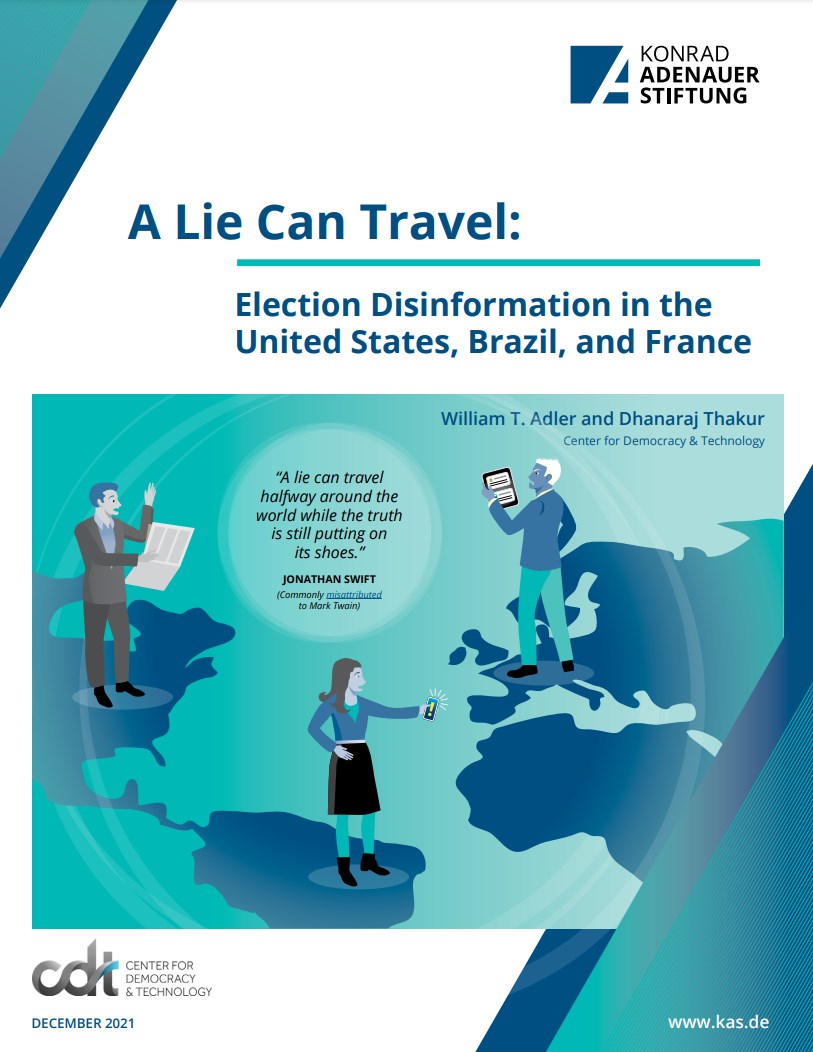Election Disinformation in France
in William T. Adler and Dhanaraj Thakur, A Lie Can Travel : Election Disinformation in the United States, Brazil, and France, Center for Democracy & Technology / Konrtad Adenauer Stiftung, December 2021, p. 38-50.

Much of the disinformation in France in recent years has been linked to specific events : the 2017 presidential election, the 2018–2020 gilets jaunes/yellow vests movement, the 2019 Notre-Dame de Paris fire, and the 2020–2021 COVID-19 pandemic.12 Since 2020, disinformation in France has taken on an unprecedented scale and is growing in volume and impact, according to the Prime Minister’s Government Information Service (SIG).13 According to SIG, this is due to several factors, including the pandemic, the proximity of the 2022 presidential election, and new incidents of terrorist violence. In recent years, especially since 2017, French authorities have become more concerned about election disinformation, and have enacted a number of legislative and policy measures that are described below. In 2021, concern about potential interference during the 2021 New Caledonian referendum and the 2022 French presidential election has been rising, a trend which will likely accelerate in the coming months as those events approach.


